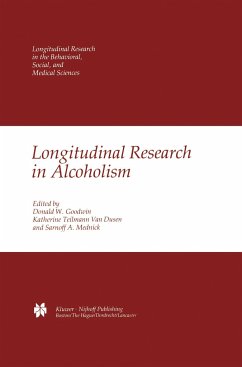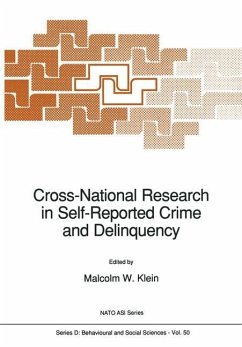
Cross-National Longitudinal Research on Human Development and Criminal Behavior

PAYBACK Punkte
76 °P sammeln!
Background In July of 1992, approximately sixty scholars and researchers met for a week at the "Fritz Erler Akademie" in Freudenstadt, Germany, to participate in a workshop entitled "Cross-National Lon gitudinal Research on Human Development and Criminal Behavior". The participants represented 15 nations and 45 universities and research centers. Although longitudinal research in criminology has a long history, this workshop represented the first one in the field of criminology in which it was attempted to get together the main scholars in this field from around the world. The largest group of ...
Background In July of 1992, approximately sixty scholars and researchers met for a week at the "Fritz Erler Akademie" in Freudenstadt, Germany, to participate in a workshop entitled "Cross-National Lon gitudinal Research on Human Development and Criminal Behavior". The participants represented 15 nations and 45 universities and research centers. Although longitudinal research in criminology has a long history, this workshop represented the first one in the field of criminology in which it was attempted to get together the main scholars in this field from around the world. The largest group of the workshop represented American scholars (19), a reflection of the fact that longitudi nal research in criminology is predominantly conducted in North America. This volume is the result of the workshop process and in particular of the invitations to participants to prepare pre or conference papers. The chapters in this volume were selected from a larger set of pre- or conference papers. Asworkshop conveners and volume editors, it falls to us to set some of the context for this enter prise. Longitudinal research in criminology became a major approach after the publication of the land mark study by Wolfgang, Figlio, and Sellin "Delinquency in a Birth Cohort" in 1972. Around the same time, when Wolfgang, Figlio, and Sellin started their Philadelphia cohort study, were longi tudinal studies, although different in scope and aim, launched by Shannon in the USA, West in England, Janson in Sweden, and Goppinger in Germany.












